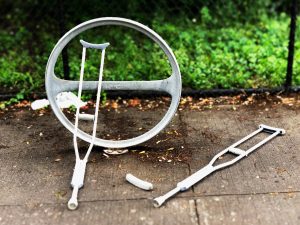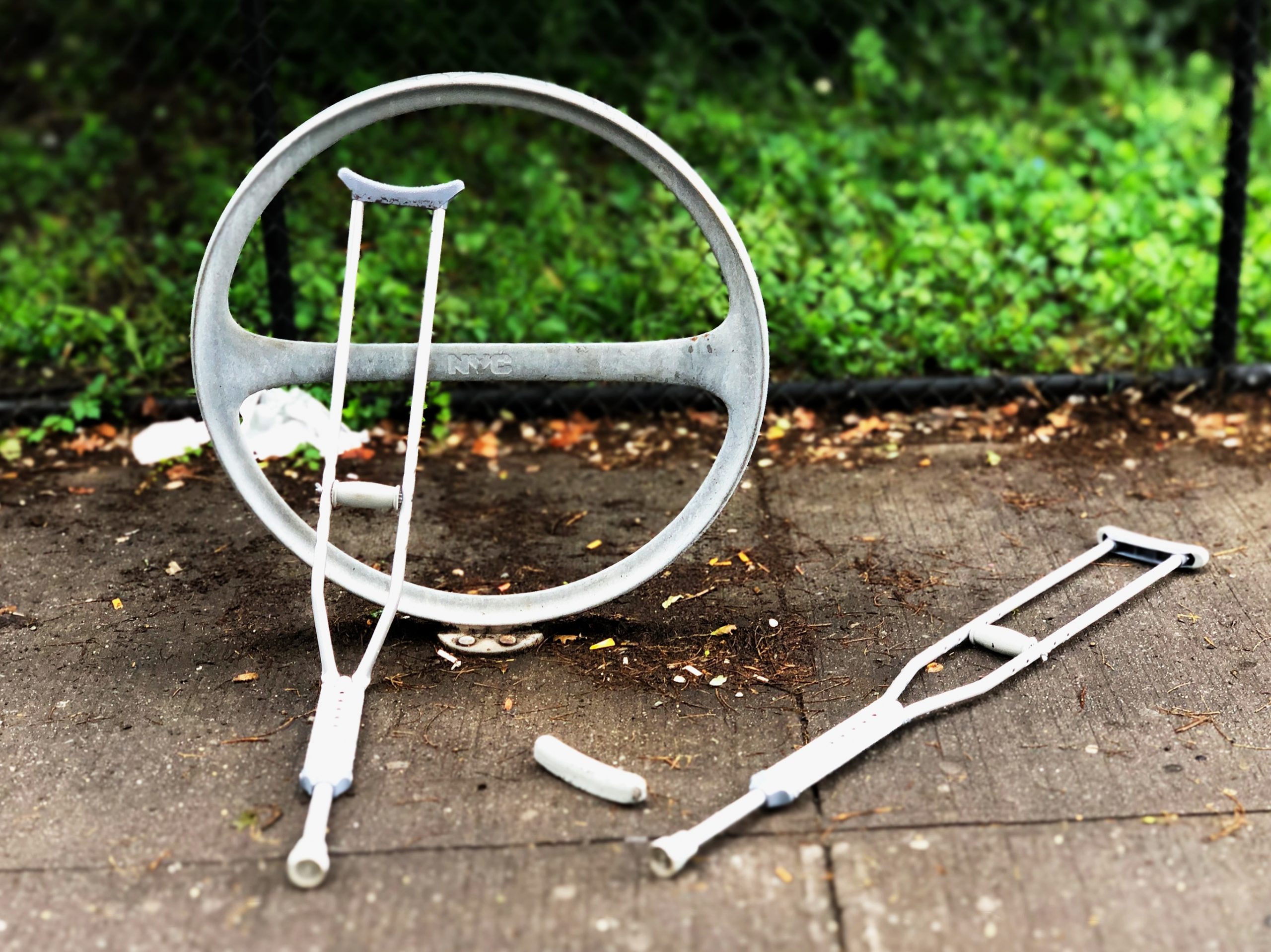
Friday Night
LAST EREV SHABBOS my chavrusa and I wished each other a good last Shabbos of the year (I’m writing this before Rosh Hashanah), as we signed off from Zoom to continue getting ready for Shabbos. As we did, we reflected on how we lost a friend, zt”l, the previous week whom just last year at the same time we thought would live for years to come. He was exactly my age when he passed away.
Then my chavrusa told me a story about a little boy who died on the last Shabbos of the year around the same place that I live but before I moved in. Originally my area was owned by Arabs and was sold to Jews by everyone except for one holdout who still lived in the area.
Apparently, the little boy had been playing on Shabbos inside a large box, and the son of the Arab, driving recklessly but not knowing the boy was inside, ran over the box on his way out, killing the boy. I can’t even begin to imagine what it was like for the family of the boy, or the community as a whole that Rosh Hashanah.
According to my chavrusa, the mother recounted at the Shivah how on that Erev Shabbos her son had asked her, “This is the last Shabbos?” She corrected her son, saying, “The last Shabbos of the year.” But the little boy for some reason repeated himself, “This is the last Shabbos?” It didn’t mean that much to her at the time, but it certainly did a day later after she received the horrible news of what happened.
There have been, sadly, many occurrences like this one, but there have also been many that have ended happily. Some people have been on the verge of disaster as the year finished when some last-minute miracle happened to turn the situation around. One day a person can suffer insurmountable pain, and the next day be completely free of it.
None of this is random and most of it may have been decided the previous Rosh Hashanah. The terrorists who carried out 9/11 may have planned their attack for years, but their success and who it would affect was decided in Heaven the previous Rosh Hashanah. Who didn’t feel the reality and heaviness of Unesanah Tokef of Mussaf that year?
But we all live with this sense of, “It only happens to others, not to me,” until it does, God forbid. In the old days, people used to dig a grave and lie in it a bit during Elul to remind themselves, “No, it can happen to me too.” Sometimes, that is what it takes to become real with a reality that we tend to take for granted. Hearing the shofar every day, saying L’Dovid, and later, Selichos, helps, but enough?
If yes, then great. You’re good. But if no, then it helps to know what it is we’re trying to reach on Rosh Hashanah through Yom Kippur, and really unto Succos and Shemini Atzeres. And for that we have an interesting gemora.
Shabbos Day
THE GEMORA SAYS regarding the verse, “And the spirit returns to God Who gave it” (Koheles 12:7) that the words, “Who gave it,” mean, as it was given, that is, a person should return their soul to God as He gave it to them, in purity. Then it provides a story to make its point:
A parable would be a king of flesh and blood who distributed royal garments to his servants. The wise ones folded them and placed them in a box [to protect them], but the foolish ones worked in them. After some time, the king requested that his garments be returned to him. The wise ones returned them to him clean, whereas the foolish ones returned them dirty. The king was happy to greet the wise ones but angry to greet the foolish ones. Regarding the wise ones he said: “My garments shall be given back to the storehouse, and let them go to their homes in peace.” Regarding the foolish ones he said: “My garments shall be given to the launderer, and they (the fools) will be locked up in prison.” The Holy One, Blessed is He, [acts] similarly. Regarding the bodies of the righteous, it says: “He enters into peace, they rest on their beds, etc.” (Yeshayahu 57:2), and with respect to their souls it says, “And the soul of my lord shall be bound up in the bundle of life, etc.” (I Shmuel 25:29). Regarding the bodies of the wicked it says, “There is no peace, says God, for the wicked” (Yeshayahu 57:21), and regarding their souls it says, “And the souls of your enemies He shall sling out in the follow of a sling” (I Shmuel 25:29). (Shabbos 152b)
The goal of life therefore is to use your soul in a way that keeps it “clean.” That means learn Torah, do mitzvos, and perform acts of lovingkindness. At the very least, be the most moral person you can be every conscious moment of your life, given your life’s circumstances. You never know what will be your last day, or if you’ll have the necessary opportunity to do enough teshuvah.
Is this not what we are doing on Rosh Hashanah and Yom Kippur? Is this not the basis of our din—judgment? As we present ourselves to the Heavenly Bais Din, it is really our souls that we bare. It is an interim check-in when we show God what we have done so far with the royal “garment” He has entrusted to us. Is it clean from Torah and mitzvos? Is it filthy from sins? Is it spotty from a combination of both?
But even if we don’t give our souls back in the upcoming year, God may still insist on an interim cleaning. In Kabbalah it is called tziruf v’libun, refinement and whitening, but we just call it yesurim—suffering. As the name screams out, it is suffering for the sake of refining and whitening the soul we have but didn’t protect well enough.
The other option is teshuvah. Repentance is more than just saying, “I’m sorry about the past, and I’ll try to be better in the future.” Teshuvah has cleansing power. It is spiritual stain remover, and the more teshuvah a person does, the greater the number of stains it can remove.
Rebi Elazar ben Durdaya taught us that. He wasn’t a rebi at first. On the contrary, he was quite the sinner who happened to wake up one day to the life he was living and decided to turn things around while he still could. He put his entire life into his teshuvah and died while doing it.
But, as the Gemora says, Rebi Elazar not only reversed his spiritual fortune and earned the right to go to the World to Come. Heaven even called him “Rebi” on his way out (Avodah Zarah 17b). In fact, as the Gemora says elsewhere, if done with love, then teshuvah can go even further, transforming the sins into actual merits (Yoma 86b).
But as inviting and easy as that sounds, it isn’t. As to be expected, it takes work, considerable work. A person has to get to the point, like Rebi Elazar ben Durdaya did, where they truly want to do teshuvah. After that, they have to get to a point where it is from love, and that is where this week’s parsha comes in.
Seudas Shlishis
MOSHE RABBEINU BERATED the Jewish people with the following:
The deeds of the Rock are perfect, for all His ways are just; a faithful God, without injustice He is righteous and upright. Corruption is not His; it is His children’s defect you perverse and twisted generation. Is this how you repay God, you disgraceful, unwise people?! Is He not your Father, your Master? He has made you and established you. (Devarim 32:4-6)
Harsh words. And yet, not taken to heart as much as they should be, evident by the fact that they are read each year with minimal to no impact, because they apply to every generation, not just Moshe’s. And they convey the most important message: Before you complain about the bad stuff, know that it does not originate with God, but a result of the world we allowed to develop because of lack of effort to keep it on the right track.
If you let the house get dirty, your clothes will as well. Likewise, if you let the world fall apart, then it will drag you and your soul down as well, making it very hard to return it back to God in the condition with which we received it. People who appreciate this do their part to right the wrongs in this world.
But it is a big world, a very big world. The best of intentions couldn’t right it without unlimited resources and tremendous help. It’s enough to make a person give up and accept their fate that seems to be common to all of mankind. It’s just too hard to swim up current all or most of your life.
But you don’t have to. You just have to want to fix the world. You have to want to stay true to Torah values in a world moving away from them. You have to keep focused on the goals of life vis-a-vis the Torah and do you part to stick to them. That’s what we have to do to warrant Heavenly help and protection from the things we cannot protect ourselves from.
So as we check in during the Aseres Yemai Teshuvah this is the message we want to communicate. We’re trying to tell the Heavenly Bais Din that we’re a team player for Team Torah, and that we plan, in the new year, b”H, to look for ways to actualize that. Nothing catches God attention, or inspires Him to help, more than this.
Ain Od Milvado, Part 66
HOW DOES ALL of this tie into the idea of Ain Od Milvado? Perfectly. Nothing expresses our belief in ain od Milvado than our loyalty to the program for Creation. That loyalty says, “My life is most meaningful when I am serving Your cause, God. I might get distracted by other things and some selfish tendencies, but in essence, it is making myself useful to You that matters most to me, because you are all that counts.”
And it seems to be a two-way street. God always works measure for measure. This means that if a person acts as if there is none other than God, then He will treat the person as if they are the only one that counts. That’s not measured by how much God fulfills our fantasies because we all know that many of them have nothing to do with what is ultimately good for us, just what feels good to have.
You can look around and see people who care less but who also seem to get “more.” And even though it might arouse envy, it doesn’t mean that they are getting what is ultimately best for them. Sometimes, they’re just getting paid off in this world so they can’t reap the eternal benefits of their few good deeds in the next world. It looks like a merit now, but it isn’t if it isn’t ultimately beneficial.
As a Jew born with a portion in the World to Come, we want a life that maintains it and even increases it. Material success, as the Gemora makes clear (Brochos 5b), rarely does this, no matter how much tzedakah you plan to give if you win the lottery. Spiritual success does, and that is something only God can determine for a person, and does when they are real with ain od Milvado.
Gmar Chasimah Tovah,
Pinchas Winston


